- Home
- Peter Lerangis
Enter the Core
Enter the Core Read online
DEDICATION
To the wonderful librarians and booksellers throughout the U.S. and the world, for all they do to get good stories into the hands of kids: not only reading and recommending books, but hosting authors in stores and libraries, organizing conferences and book festivals, bringing us into schools, and promoting literature as the portal to a future of bright, compassionate thinkers and leaders.
CONTENTS
Cover
Title Page
Dedication
Prologue
Chapter 1
Chapter 2
Chapter 3
Chapter 4
Chapter 5
Chapter 6
Chapter 7
Chapter 8
Chapter 9
Chapter 10
Chapter 11
Chapter 12
Chapter 13
Chapter 14
Chapter 15
Chapter 16
Chapter 17
Chapter 18
Chapter 19
Chapter 20
Chapter 21
Chapter 22
Chapter 23
Chapter 24
Chapter 25
Chapter 26
Chapter 27
Chapter 28
Chapter 29
Chapter 30
Chapter 31
Chapter 32
Chapter 33
Chapter 34
Chapter 35
Chapter 36
Chapter 37
Chapter 38
Chapter 39
Chapter 40
Chapter 41
Chapter 42
Chapter 43
Epilogue
About the Author
Books by Peter Lerangis
Back Ads
Copyright
About the Publisher
PROLOGUE
BITSY Bentham hadn’t planned on biting a bus driver.
The thing was, thievery made her nervous. There was so much to think about. Choosing a fake name, for instance, should have been devilishly easy. But the ones that came to mind sounded just wrong—Pinky LaRue, Becky Pancake, Ann Anson. She was distracted by her backpack, which smelled like the farts of a sick old dog. The five vials inside were sealed, so they should have been odorless. Worse still, the bus hadn’t yet left the parking lot in Savile, Ohio, and all she had to eat was a stale scone and a cup of lukewarm tea. So her hands were full when a gray-uniformed arm reached for her pack and a voice in the aisle said, “Before we start, young lady, why don’t I put this heavy thing on the overhead rack for you!”
Under the circumstances, teeth were her only option.
“Heeempf!” For a big walrus of a man, the driver had an oddly dainty scream. As he yanked his arm away, Bitsy’s mouth was left with the taste of stale coffee, laundry detergent, and old polyester.
“So sorry,” she managed to say. “You scared me. Erm . . . I’d like to keep the backpack on the seat if it’s all the same. I’m . . . very attached.” She flashed her sweetest, most embarrassed smile.
“Right . . . no problem . . . uh, ticket, please?” The man took a deep breath, straightening himself out as Bitsy reached into her pocket. “So I’m guessing you’re from Australia?”
Whatever sympathy she felt for him vanished in a puff. What was it about Americans, always trying to guess at accents, always wanting to invade a person’s privacy? Bitsy stopped herself from snapping the obvious answer—No, English, you fool! But secrecy was paramount.
With a smile, she held out her ticket and replied in her best New England accent, “I’m a stoo-dent at Haaaaahvard.”
The attempt was terrible. Her statement was a lie, and it sounded like a lie. This was another thing Bitsy would have to work on, her acting.
Fortunately it didn’t seem to matter. The man chuckled and nodded. “Well, stay right on. It’s a long trip.” He rubbed his arm where she’d bitten him. “What do you study there . . . at Harvard? Cannibalism? Heh heh heh.”
Bitsy gritted her teeth. “Grrrr.”
The driver flinched, then smiled weakly and waddled to his seat.
At long last the bus began to pull out. Bitsy looked over the parking lot. Mr. Tilt’s car was long gone. By now he’d be trawling the streets in a confused tizzy over “losing” Bitsy. He’d feel like it was his fault. Soon he’d return to the house. It wouldn’t be long before he, or his wife, or their son, Max, or their niece Alex would run upstairs to check the safe.
It gave her heart a tug to think of their faces when they realized the vials were gone. They had traveled the world to find these ingredients, which together made the greatest healing power the world had ever known. They had trusted her.
But business was business. An opportunity like this had to be exploited properly. A world of customers was waiting, and someone had to serve them. Something this important could not be left in the hands of a goofy American kid and his eccentric Canadian cousin.
Bitsy felt for the two phones in her pocket. She’d shut hers off, of course. No one would be able to track her on that, and soon she would destroy it.
The other was a disposable one, a so-called burner. How lovely that the bus station was located in a part of town where these things were sold. A gloomy little gadget shop where no questions were asked and money was pushed under bulletproof glass.
As the bus turned onto the highway, she set her breakfast on the tray table. The grubby little phone could still access the local NPR station’s website on its browser. She was dying to hear this morning’s news report again, which would be posted by now.
News about Papa.
She had overheard the report live, on the Tilts’ radio station that morning, before the escape. But what fun it would be to hear it clearly.
Inserting her earbuds, she moved the indicator toward the end of the broadcast: “And in one last breaking item this morning . . . some news about the disgraced American industrialist Spencer Niemand, last seen trying to steal a treasure from two young Ohio descendants of Jules Verne . . .”
As she listened intently, Bitsy couldn’t help grinning.
No, not Bitsy anymore. Elizabeth. Why bother with fake names, when you have a perfectly good one that nobody knows? From here on, she would use the name she’d been born with. She would be Elizabeth Niemand.
Papa would be happy. She hadn’t seen him in such a long time.
1
“MAX, are you all right? Talk to me!”
For Max Tilt, nearly being hit by a car was a rotten way to start the day. Especially a car being driven by his dad. Who was now pushing his way out the door, looking very upset.
Dad was the kind of guy who wouldn’t even run over a grasshopper if he could help it, let alone his own son. So Max knew it wasn’t Dad’s fault. Which meant it must have been Max’s. And that was upsetting, because he couldn’t remember the last few minutes.
One moment Max was in his living room, the next he was here—in the road outside his house, spitting gravel. These things sometimes happened, and Max wasn’t always sure how. Right now he was only sure of three things: (1) The left side of his face stung. (2) He smelled burning rubber from the tires, which were only a few inches away. (3) He also smelled dark chocolate, but that was because Max always smelled dark chocolate when he was relieved.
Dad knelt beside him, cradling a strong hand around the back of Max’s neck. Max couldn’t help noticing how distorted his father’s face looked, grim and tight like somebody was pulling the skin from behind. This was scary, because it was exactly the same expression he’d had when Max’s mom was diagnosed with cancer. So Max asked the first question that popped into his mind. “Is Mom OK?”
Dad cocked his head. “Mom? Yes, she’s fine, but—”
<
br /> “The serum worked, right?” Max pressed. “It wasn’t some crazy dream?”
“Yes. I mean no. No dream!” Dad sputtered. “But you—are you hurt? You ran right in front of me, Max! What happened?”
It was a good question. Little fragments of memories slipped into Max’s brain, like knives ripping through a tent to reveal a thunderstorm. “The safe . . .” he said. “She broke into it and took everything. Bitsy. She stole the vials.”
“Oh, Max . . .” His dad held him close to his chest, but Max pulled away.
“Then she went shopping with you, and you let her disappear,” Max went on, struggling to his feet. The aroma of chocolate was fading now, giving way to the smell of cat pee, which meant anger.
Four people were heading toward him. His cousin Alex was fastest, her thick curly hair flopping in the wind. Behind her was Max’s best friend, Smriti, from across the street, her face like a giant exclamation point. Third was Max’s mom. And last was his robotics partner, Evelyn Lopez, who still needed a cane to walk.
Alex got to him first, taking him by the shoulder. “Dude, is this a thing with you—running into the street when you get upset? You have to control this.”
Control.
Max shook loose and looked away. He didn’t want to meet her eyes. He knew this wasn’t about him running into the street. This was about control—about having it and then losing it.
He and Alex had just lost it, big time.
What good was it to have traveled all over the world and risked your lives, to have found ingredients for the most miraculous serum in the world, something that would help every single human being—when you let someone steal it from under your noses? Poof—gone!
Running to the passenger door of his dad’s car, Max yanked it open. “Why are we standing here? I’m fine. Come on!”
“Where are we supposed to go?” asked his mom, whose slower walking pace had finally caught her up to Alex and Smriti.
“To get Bitsy, duh!” Max blurted.
“Bitsy’s been gone a while, Max,” Smriti pointed out. “She could be anywhere.”
“We’ll go to the airport!” Max said. “We’ll go to the train station! The . . . the news media!”
Alex came eye to eye with him. “OK, I get it. You know me. I want to jump on this too. But face facts, Max, she’s too smart to do anything obvious. And going to the news media means exposing our discovery. So I’m accessing my inner Max here. I’m thinking we need a strategy. The only way we’ll get her is to outthink her. What do you always tell me when we’re faced with a really complicated problem?”
Max’s heart was banging away. He forced himself to look into Alex’s big green eyes. “Break it down,” he murmured. “Into parts.”
“We know she’s gone,” Alex said. “We also know she’s sneaky. She told your dad she was the daughter of Spencer Niemand. This does not surprise me. I think she has his evil-mastermind genes.”
Max thought back to their confrontation with Gloria Bentham, Bitsy’s mom. It’s Bitsy I don’t trust, she’d said—about her own daughter! “Her mom tried to warn us,” Max said. “We ignored her. We thought she was the traitor! We got her locked up.”
“Pending a hearing,” Max’s mom reminded him.
“Can you talk to her?” Smriti suggested. “She might have some idea where Bitsy went.”
“One step ahead of you.” Alex held up her phone. “When we heard Bitsy was gone, the first thing Evelyn said was, ‘Call the prison.’ So I did. They said we can visit Gloria at four if we want.”
Now Evelyn and her mom were approaching. A day earlier, Evelyn had been in a wheelchair. Her body had been growing stiff with the effects of a disease called scleroderma. Mom had been unconscious and riddled with cancer. Now they were both standing upright. They were on their way to health, because of the serum. And now the serum was gone.
Max glanced at his watch. “That’s seven hours from now! We can’t just go now? Tell them to change our reservation?”
“It’s a jail, Max, not a restaurant,” Alex said. “They have strict hours.”
“But—but Bitsy could be halfway around the world by then!” Max protested.
Smriti was trying hard to understand. “Wait . . . Bitsy stole your stuff? Why?”
“Maybe if we knew that, we’d have some clue how to track her,” Alex suggested.
They were interrupted by the tooting of a car horn, someone trying to get by.
“Can we move this conversation out of the street?” Mom asked, taking Max’s arm. As she led him to the sidewalk, Dad got back into the car and began steering it slowly into the driveway.
“Maybe she’s going to make a deal with some chemical factory,” Max murmured, nearly tripping over the curb, “and make gazillions of dollars selling the cure.”
Alex shrugged. “Or sell the vials on the black market and make a quick killing.”
“Whatever it is, she needs to find people who will believe her,” Smriti remarked. “People she can trust to keep her secret. Those are two things in your favor. I mean, really—Hey, I have a magic cure for cancer made from weird waters from around the world. Who’s not going to just laugh at her? So it’ll take time for her to do this. And while she’s doing it, she’ll need to keep those vials safe.”
“So we may have a chance to get her before she does anything stupid or greedy,” Alex said. “Time is on our side.”
“Can I ask a question?” Evelyn said. “Why do you need the serum anymore? I’m feeling amazing. I haven’t been able to stand in two months and now I can. I can feel my body repairing itself. And your mom looks awesome.”
Mom smiled at her. Mom’s face was thinner, her eyes sunken, but she was a million times healthier than she was a few days ago.
“She looked awesome after the first round of treatments too,” Max said. “From the Mayo Clinic. We had all this money from the treasure we found, and we thought we had bought her the best care in the world. But then . . .”
Skunk, the smell of sadness, was twirling its way faintly up his nostrils. So he didn’t say relapse. Sometimes certain words made things worse. That one would have caused the stink to be unbearable.
“You’re afraid,” Evelyn said, “that it might wear off. Or that we’ll need follow-up doses. So much of this is unknown.”
Max saw Mrs. Lopez put her arm around her daughter, and it made him mad and afraid and sad, all at the same time. “You could actually drop dead,” he said. “At a moment’s notice.”
“Max . . .” Alex hissed.
“Let’s go inside,” Mom said. “I’m expecting visitors. Some friends want to come over and celebrate my health. You guys can hang until you’re ready to go meet Gloria Bentham. Alex is right. Be thorough and be patient. Deal?”
“Deal,” said Alex.
“Deal,” said Smriti.
“Me three,” said Evelyn.
“Max?” Mom said.
“Easy for all of you to say,” Max grumbled. “You don’t have to smell cat pee for seven hours.”
The living room was full of Mom’s friends. Rufus Peeble, the quiet neighbor with shredded-wheat hair, was secretly squeezing the chocolates in the box he’d brought. Mom’s author friend Stephanie Pappas was signing her new book with a flourish, like it was the Declaration of Independence. Evelyn was sketching out the plans for a robot that she and Max were working on, before a small group of fascinated adults. Every couple of minutes a new visitor came with gifts or flowers.
Max sat on a chair in the corner, fiddling with a shiny metallic Rubik’s Cube. He couldn’t stop staring at Mom. When she burped, Max raced to get her some seltzer. When she coughed, he rubbed her back. When she sneezed, he nearly jumped to the ceiling.
That was when Alex finally broke away and approached him. “Dude, are you trying to creep everyone out,” she whispered, “or does this behavior just come naturally?”
“Mercaptan,” Max replied.
Alex cocked her head. “Say what?”
“I’m feeling anxious,” Max said. “And when I’m anxious I smell mercaptan. It’s a chemical that gives off that rotten-eggy odor when you turn on a stove. They add it to the methane for safety, because methane is odorless.”
“Thank you, Mr. Factoid.” Alex pushed back her thick black hair, and it seemed to flash a million colors in the chandelier light. “Your mom’s starting to worry about you, Max. Usually you try to make conversation for about three nanoseconds, then go into your room to make impossible inventions. I think she’d be happy if you stopped staring at her and acted like yourself. This is a celebration, not an audition for Zombie Children of Ohio.”
“Are you being sarcastic? I’m not good at sarcasm.”
Alex let out a breath. “Sorry. I’m anxious too, just like you. I close my eyes and see Bitsy laughing at us. I open my eyes and I imagine everyone in this room thinking we’re wimps for letting her steal the vials.” She glanced toward the wall, at the dark old portrait of their great-great-great-grandfather, the famous science-fiction writer Jules Verne. “I even think he’s mad at us.”
“Wow,” Max said. “And you’re not even on the spectrum.”
The portrait seemed to be staring at them, over the heads of everyone in the room. With his thick gray beard and heavy wool coat, Verne seemed on the verge of jumping out.
“Do you think his eyes are moving?” Max whispered.
Alex stood and moved deeper into the living room. Spotting her, Rufus offered a half-squashed chocolate, but Alex ignored him. She kept her eyes on the painting and edged back to Max. “Creepy. Know what else? He has a twin. On the gift table.”
She pointed toward a pile of presents, at the top of which was a glossy hardcover book called Journey to the Center of a Genius: The Life and Times of Jules Verne. And on its cover was the exact image of the portrait on the wall.
No. Not exact.
Max lifted the book from the table. He stared at it closely, then at the painting on the wall. “Actually, they aren’t twins.”
“You are so literal,” Alex said. “What I mean is, it’s the same painting.”
“Nope.” Max held out the book closer to Alex. “What do you see at the lower right-hand edge of this book cover?”

 The Orphan
The Orphan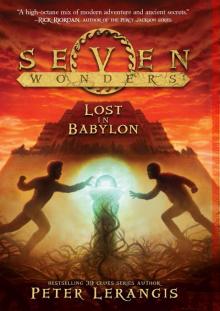 Lost in Babylon
Lost in Babylon Last Stop
Last Stop Antarctica Escape from Disaster
Antarctica Escape from Disaster Rewind
Rewind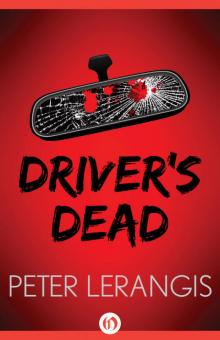 Driver's Dead
Driver's Dead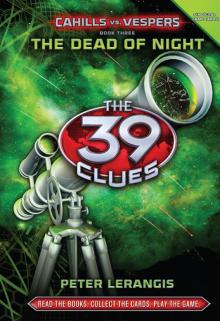 The Dead of Night
The Dead of Night The Promise
The Promise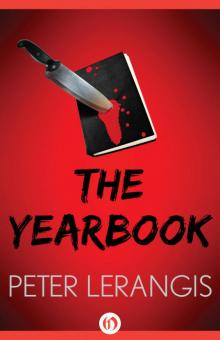 The Yearbook
The Yearbook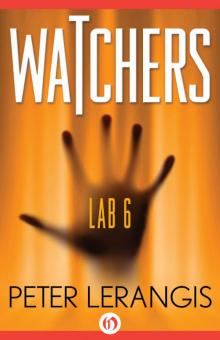 Lab 6
Lab 6 The Tomb of Shadows
The Tomb of Shadows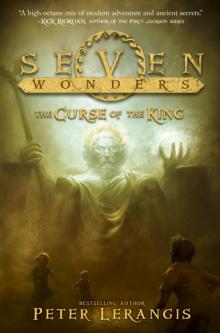 The Curse of the King
The Curse of the King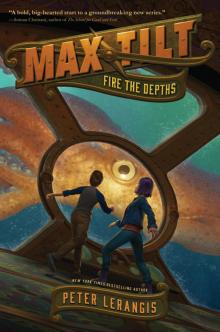 Max Tilt: Fire the Depths
Max Tilt: Fire the Depths The Fall Musical
The Fall Musical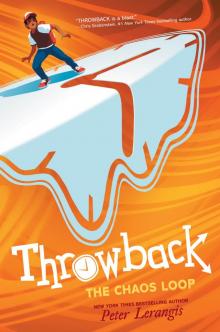 The Chaos Loop
The Chaos Loop Island
Island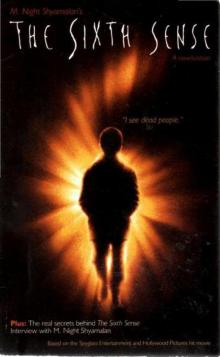 The Sixth Sense
The Sixth Sense Wtf
Wtf War
War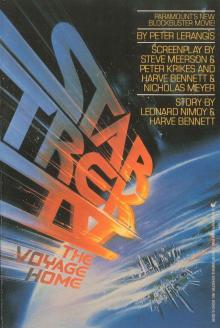 Star Trek IV, the Voyage Home
Star Trek IV, the Voyage Home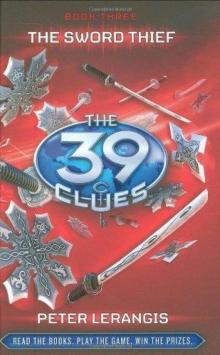 The Sword Thief
The Sword Thief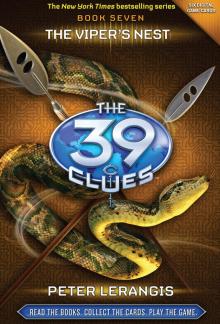 The Viper's Nest
The Viper's Nest The Select
The Select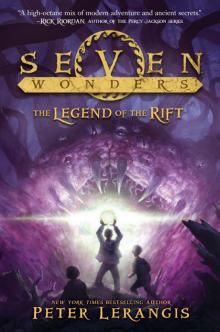 The Legend of the Rift
The Legend of the Rift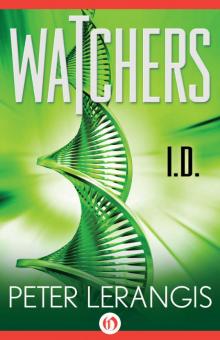 I.D.
I.D. The Sword Thief - 39 Clues 03
The Sword Thief - 39 Clues 03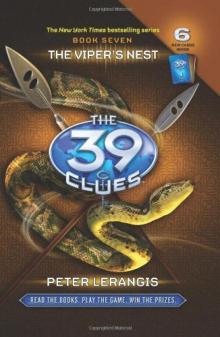 The 39 Clues Book 7: The Viper's Nest
The 39 Clues Book 7: The Viper's Nest Antarctica
Antarctica Seven Wonders Journals: The Select
Seven Wonders Journals: The Select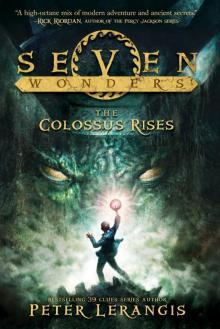 Seven Wonders Book 1: The Colossus Rises
Seven Wonders Book 1: The Colossus Rises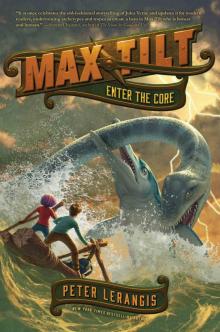 Enter the Core
Enter the Core![39 Clues _ Cahills vs. Vespers [03] The Dead of Night Read online](http://i1.bookreadfree.com/i1/04/02/39_clues_cahills_vs_vespers_03_the_dead_of_night_preview.jpg) 39 Clues _ Cahills vs. Vespers [03] The Dead of Night
39 Clues _ Cahills vs. Vespers [03] The Dead of Night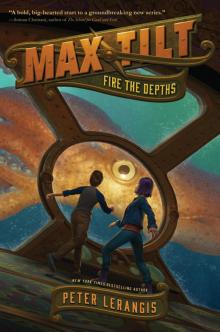 Fire the Depths
Fire the Depths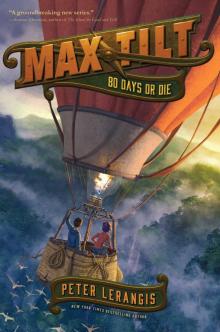 80 Days or Die
80 Days or Die Seven Wonders Book 3
Seven Wonders Book 3